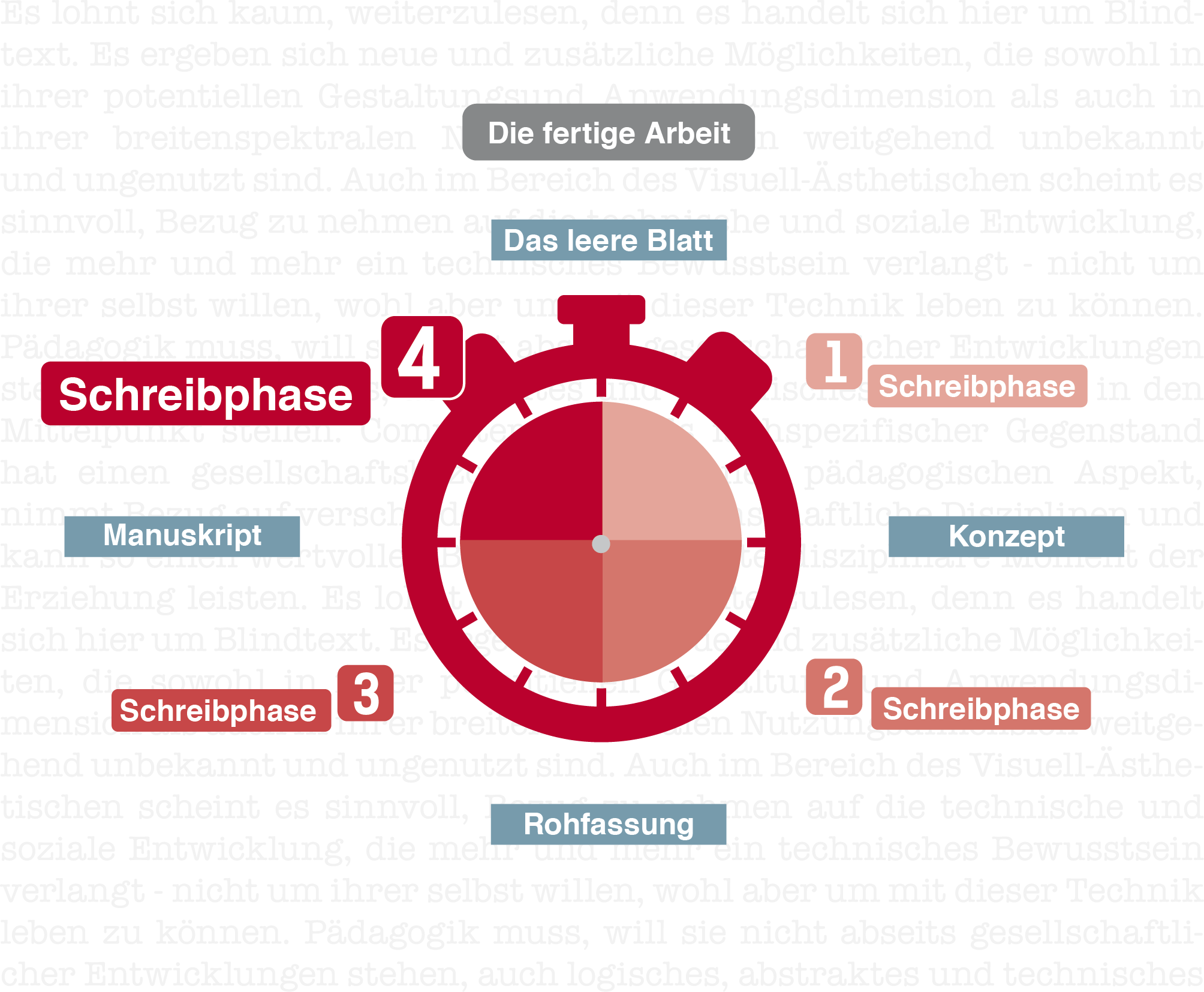Are you about to write an academic paper and don't know how or where to start? Here you will find tips on how to structure the writing process in a sensible way.
Make it a habit to write often from the very beginning. Writing competence develops through frequent and reflective writing.
A «writing clock» can help you to divide the writing process into suitable phases. We propose a process in four phases in our «writing clock» (see the German-language illustration below). Each phase takes about a quarter of the available time. This is a guideline value intended for rough orientation and can be adjusted individually.

This writing clock will make your work easier by allowing you to tackle one stage at a time. After each writing stage, you will reach an important intermediate goal in the form of a new text version of your work.
We have largely based our classification of the various writing phases on Otto Kruse's book «Keine Angst vor dem leeren Blatt» (Don't be afraid of the blank page). We have combined his model with time planning and presented it as a «writing clock».
In the following, we explain what is particularly important in the four different writing phases.
Writing phase 1: up to the concept
In the first writing phase, you need to clarify fundamental questions. What is your motivation for this paper? What are the general conditions? What is going to be the topic of your paper? How much time do you have available? The more time and care you invest in the planning phase, the better things will go later when you write.
Writing phase 2: up to the rough draft
The second writing phase is about immersing yourself in the research and reading phase, developing the concept further and writing the rough version. In this sub-phase, you develop the foundations for the subsequent rough version.
Whether you are researching current controversies, suitable approaches or models for the theory part of your paper or collecting and evaluating empirical data – it is important to use your time economically.
Writing phase 3: up to the manuscript version
This writing phase is primarily concerned with revising your rough version. This phase takes up another quarter of your total time. Make several revisions during this phase:
- Concentrate first on the structure of the content and ideas. Read through your draft and review your own thought process. Check your text for completeness, clarity, soundness, and coherence of arguments. Fill in gaps, add evidence from the literature used and data from your own research.
- Write the introduction and the concluding chapter.
- Then focus on the linguistic form and finally on formal correctness.
Writing phase 4: until the final version
The fourth writing phase is when you put the finishing touches on your work Now you have time to incorporate feedback and final corrections. If possible, take a break and put your text aside before you start the final revision. Then read through your text again carefully and critically. Specifically, the aim is to:
- Check formalities: Table of contents, font size, line spacing, quotations, footnotes.
- Complete the appendix and bibliography
- Check language style and syntax
- Check references to content
Part of the challenge of academic writing is not only getting started, but also finishing. Perhaps you can still find something that can be improved? When you have made several revisions to the text and gathered feedback from outside sources, it is time to let go and hand it in.
- Tip: Also take some time to reflect on the process of your work. Record your reflections in a writing journal so that you can benefit from them in your next text.
Further information
You can find a variety of guidebooks on academic writing in our library.
Personal counselling
If this information is not enough for you, you can also apply for individual counselling with us. Discuss your challenges and difficulties in the writing process with us – free of charge and confidentially.